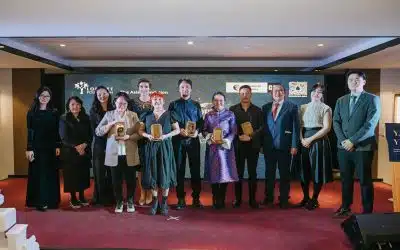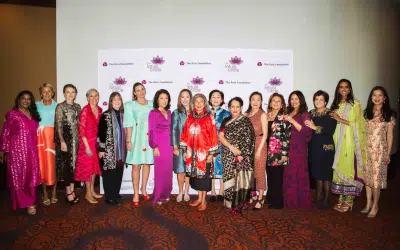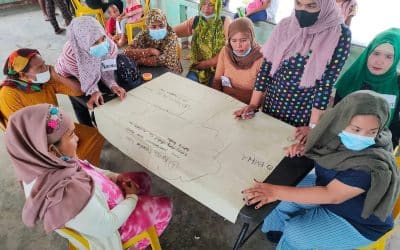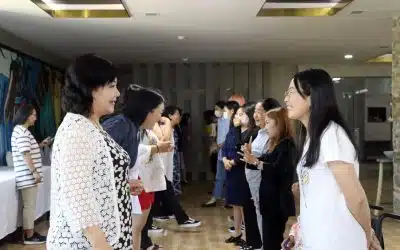Survey Reveals Changing Perceptions in Bangladesh’s Political, Economic, and Social Landscape
A just-published report—based on the survey titled “The State of Bangladesh’s Political Governance, Development, and Society,” jointly conducted by The Asia Foundation, Bangladesh, and BIGD of BRAC University—sheds light on Bangladeshi citizen’s perception of the political, economic, and social atmosphere of the country. The survey collected data from 10,240 adult men and women representing all 64 districts between November 2022 and January 2023. The same survey was also conducted in 2019, 2018, and 2017.
Dynamics of Bangladesh’s Society, Politics, and Economy
The survey respondents were asked whether they thought that the country is heading in the right direction– socially, politically, and economically. While a modest majority (58%) agreed that Bangladesh is heading in the right direction socially, 39% disagreed. Only 39% thought the country is heading in the right political direction, and about 48% disagreed. This perception was the lowest for economic direction; only 25% thought the country is heading in the right economic direction, whereas 70% disagreed. These rates, across all three domains, are significantly lower than what they were in 2019, indicating a considerable deterioration of the public perceptions about the country’s future.
Interestingly, when looking at the changes in the right direction responses from 2019 to 2022 across income groups, it appears that the lower income group’s positive response regarding the country’s economic direction, in particular, decreased considerably compared to the higher income group. In 2019, about 84% of respondents with a monthly income of 5,000 taka or less said the country is heading in the right economic direction; only 32% said so in 2022, which is a 52% drop. Comparatively, for respondents with 40000-to-50000-taka monthly income, this reduction is only 30%, from 58% in 2019 to 27% in 2020.
As the major problems facing Bangladesh, Price hikes came out as the top problem, mentioned by 44% of the study respondents. When specifically asked about the impact of price hikes, about 84% of all respondents in 2022 said that it has severely impacted their lives. Other significant problems mentioned by the respondents included business downturn, unemployment, corruption, and political instability.
Democracy
About 54% of the respondents in 2022 strongly agree that Bangladesh is in a political setting where one party plays a dominant role in politics and governance, which was reported by an even higher percentage (72%) of the respondents in 2019. Interestingly, in 2019, only 11% thought that the dominant party’s impact on politics was negative; this year the percentage is notably higher (34%).
Attitude towards Rohingyas’
Sympathy toward the Rohingya refugees seems to be fading. In 2018, 34% of respondents said they would welcome them in their community, which was reduced to 15% in 2019 and to 13% in 2022. A large group (44%) feel that the government is doing a lot, and 44% view the government is doing enough to support the refugees.
Padma Bridge
A majority (72%) said that the Padma Bridge is the most important success in Bangladesh. Nearly half (47%) credit the bridge’s construction to Prime Minister Sheikh Hasina, while 28% credit the Bangladesh government.
Read our latest news, or insights from our blog.
Media contact
Eelynn Sim, Director, Strategy and Programs
[email protected]
The Latest Across Asia
Program Snapshot
May 2, 2024
News
April 25, 2024

2024 Lotus Leadership Awards
The Lotus Leadership Awards recognize contributions towards gender equality in Asia and the Pacific






